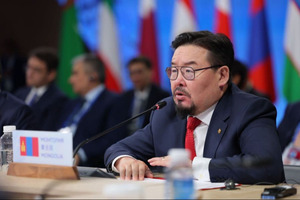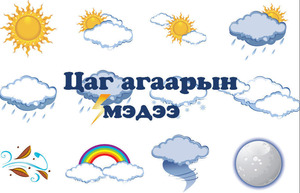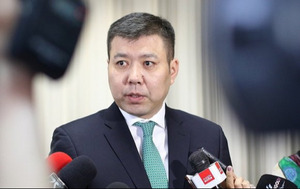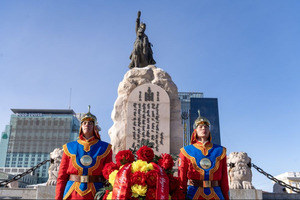 Fidel Castro, the Cuban revolutionary who built a communist state on the doorstep of the United States and for five decades defied U.S. efforts to topple him, died on Friday. He was 90.
Fidel Castro, the Cuban revolutionary who built a communist state on the doorstep of the United States and for five decades defied U.S. efforts to topple him, died on Friday. He was 90.
A towering figure of the 20th century and Cold War icon, Castro stuck to his ideology beyond the collapse of Soviet communism and remained widely respected in parts of the world that struggled against colonial rule.
Castro had been in poor health since an intestinal ailment nearly killed him in 2006. He formally ceded power to his younger brother, Raul, two years later.
Wearing a green military uniform, a somber Raul, 85, appeared on state television on Friday night to announce Fidel's death, 60 years to the day since the two brothers and dozens of supporters left Mexico on a boat to take revolution to Cuba.
"At 10:29 at night, the chief commander of the Cuban revolution, Fidel Castro Ruz, died," he said, without giving a cause of death.
"Ever onward, to victory," he said, using the slogan of the Cuban revolution.
A mix of tributes and condemnation poured in from allies and foes around the world.
"History will record and judge the enormous impact of this singular figure on the people and world around him," U.S. President Barack Obama said, extending "a hand of friendship" to Cuba.
Obama's elected successor, Donald Trump, issued a blunt statement calling Castro "a brutal dictator who oppressed his own people for nearly six decades."
"Fidel Castro's legacy is one of firing squads, theft, unimaginable suffering, poverty and the denial of fundamental human rights," Trump said.
Venezuela's socialist president, Nicolas Maduro, urged revolutionaries to follow Castro's legacy, while Chinese President Xi Jinping said "the Chinese people have lost a close comrade and a sincere friend."
DECADES OF HOSTILITY
Raul Castro, who glorified his older brother, has nonetheless changed Cuba by introducing market-style economic reforms and agreeing with the United States in December 2014 to re-establish diplomatic ties and end decades of hostility.
It is unclear whether Trump, who takes office on Jan. 20, will continue efforts to normalize relations with Cuba or fulfill a campaign promise to close the U.S. embassy in Havana once again.
Fidel Castro himself offered only lukewarm support for the 2014 deal with Washington, raising questions about whether he approved of ending hostilities with his longtime enemy, a conflict that took the world to the brink of nuclear war during the Cuban Missile Crisis in 1962.
He did not meet Barack Obama when he visited Havana earlier this year, the first time an American president had stepped foot on Cuban soil since 1928.
Days later, Fidel wrote a scathing newspaper column condemning Obama's "honey-coated" words and reminding Cubans of the U.S. efforts to overthrow the Communist government.
Cuba has declared nine days of mourning, during which time Castro's ashes will be taken to different parts of the country. A burial ceremony will be held on Dec. 4.
There will be no top level games of baseball - Castro's passion after politics - for the nine-day mourning period, the sport's national federation declared.
Hundreds of students gathered in Havana on Saturday to honor Castro, and mass rallies are planned for the coming days.
"When I found out Fidel had died, I felt such pain. I cried," said Badanys Rodriguez, 39, proudly showing off a tattoo on his shoulder of late Argentine revolutionary Ernesto "Che" Guevara, one of Castro's closest comrades in the revolution.
However, in Miami, where many exiles from Castro's government live, a large crowd waving Cuban flags cheered, danced and banged on pots and pans to celebrate the passing of a man they loathed.
Source: reuters
For Mongolian version please visit here
Монгол эхийг энд дарж уншина уу























Сэтгэгдэл байхгүй байна